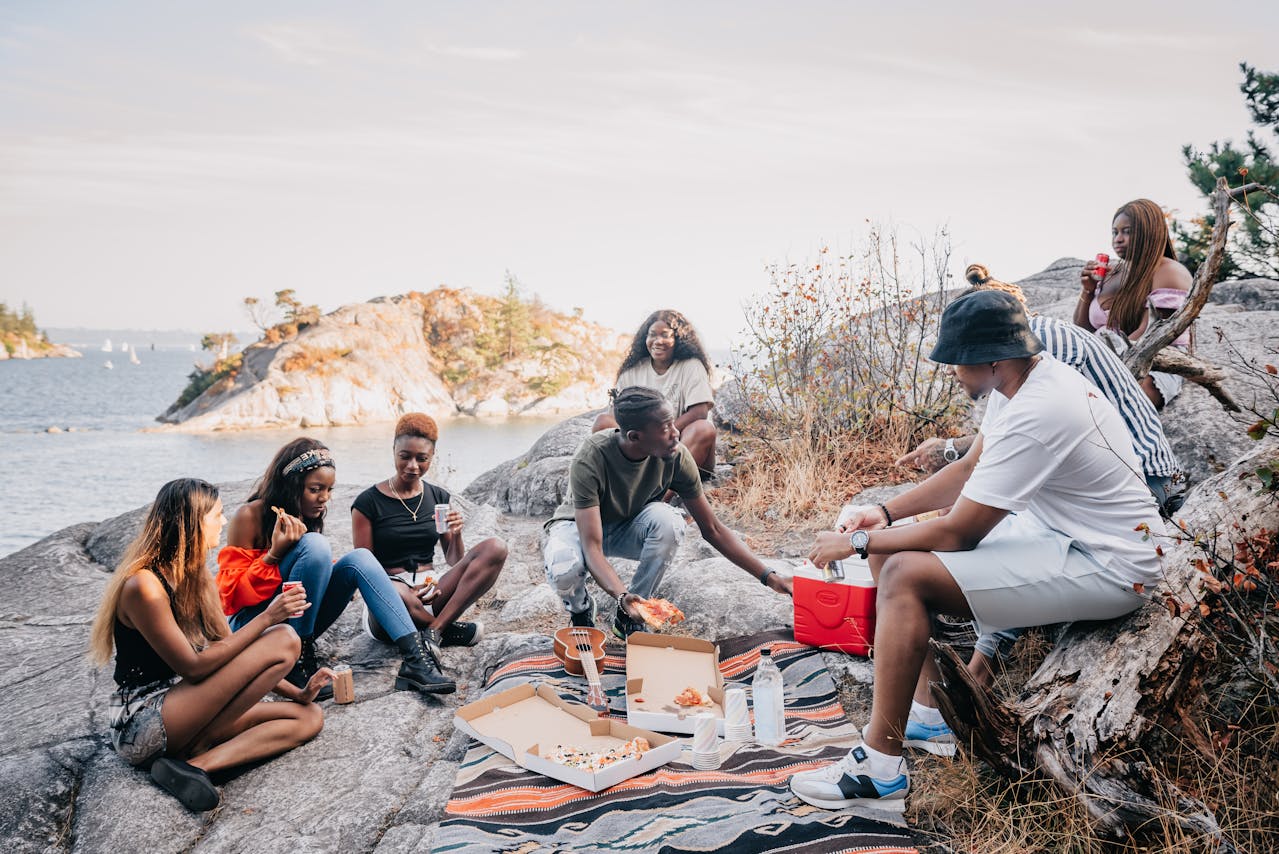Society has taught us that love is a strategy.
Even as a child, I felt as though I was taught that I could only receive love when I was good. The baby interprets good behavior as worth love, whereas bad behavior is cause for punishment.
As we grow up, love becomes a transaction. We only receive love when we meet someone else’s expectations. Love is only earned through being useful, likable, and attractive.
As a result, we hide the undesirable parts of ourselves, fearing that we would no longer be loved.
Our lives become performative due to our innate craving for love. Our performances include strategies for helping you find love.
We please others to avoid rejection, act as caretakers to feel needed, and give love in the hope of receiving it back.
This isn’t love. This is insecurity dressed up as connection.
I know that love has become a strategy because strategies have goals. When diving into the dating pool, it’s hard to talk to someone without them revealing their goals for the interaction.
Marriage is often the ultimate goal, so even before meeting, a goal-oriented person ensures their companion for the day is aligned with that goal.
Sometimes, this is more important than actually getting to know the person.
I’ve found it difficult to date when I’m only joining them so that they can check a box on their list of achievements.
When we are looking for love, we are looking for it as an effect. We can control love by controlling the cause of this effect.
I’ve become very intuitive when I feel like love comes with an agenda. True love doesn’t need reciprocity.
Love as an Outcome
When we treat love as an outcome, we are constantly wondering if the action that we took “worked.”
As a teenager, I would show love through art. I would create a mixtape or draw a picture of the girl I had a crush on, hoping they would like me because of it.
This wasn’t manipulation; it was love with strings attached.
I didn’t create a mixtape for my friends, nor did I draw pictures. I only did so to find a girlfriend.
Looking back on it, it didn’t work. The reason why it didn’t work is very easy.
Instead of treating the person I had a crush on as a person, I treated her as an investment. I’d give in hopes of making a return. I’m sure the expectation of a return only made the girl uncomfortable.
Yet, we still believe that love is all about results.
We want to put labels on our love in hopes of certainty. We must know where love is going and be comfortable in all aspects of love.
This is not true love. True love is presence. It’s showing up regardless of our comfort level.
True love doesn’t know where things are going, but is willing to ride the waves.
This doesn’t just apply to romantic love, though it is the easiest way to illustrate it. To love, all we have to do is show up.
The Intention of the Love Strategy
Love, as a strategy, is intended to evoke fear. We make sure we do our part in relationships because we fear abandonment.
We control these people because we know that love has no guarantee. Our definition of love can just as easily leave as it came.
So we use love to control outcomes. We are friendly to the coworker in hopes that they will be friendly back. We use love to manage perceptions.
It’s not too difficult to interpret this type of love as something very selfish. Love as a strategy is self-preservation.
Do we truly care about the other person, or do we want to ensure that we feel loved? What if we gave love even if there was no guarantee of return?
I can love you even if you don’t choose to love me back.
Love as a strategy only cares about how we feel. We only care if we feel safe. We often use other people to validate ourselves.
True love is service towards others, rather than a performance for something.
It’s interesting to believe that we need safety to love. We take Maslow’s triangle seriously.
This is why we yearn for marriage: Marriage promises stability and certainty.
Cheating has very little to do with love and much to do with betraying the stability it represents.
To maintain a stable relationship, we often refrain from revealing the true aspects of ourselves. We are ashamed of our nakedness, and so we hide. Then we wonder why the relationship gets stale.
True love is an expression of our full selves, regardless of whether someone likes us or not. I would rather be loved for who I am than just for the parts perceived as acceptable.
The Controller is Controlled
They won’t tell you this, but those who control end up being controlled.
How so? The other person may not control you, but the love that you seek now controls you.
Love as a strategy will keep you hoping for the love you seek. It will have you calculating moves and performing for outcomes. You only free yourself from this performative love by simply being. By being who you are with no expectations, you become free.
We no longer need to manipulate reality to feel better about ourselves. We are already perfect.
If you are trying to love, you aren’t doing it right. There is no try. Love can’t be forced, and no effort is involved.
Love seeps through when we cease trying to control the moment.
We will learn about love once we stop seeing people as achievements to be attained. Love is not something that is earned, regardless of our upbringing or what is said on the performance review.
We are loved not because of what we do, but because of who we are. Beneath all that trying lies perfection.

